9 Outstanding Middle Grade Books About Eating Disorders & Body Image
This post may contain affiliate links.
If left unchecked, concerns about eating and one’s body size can lead to serious physical health and mental health issues—anxiety, eating disorders, disordered eating, body dysmorphia, and even suicide. It’s urgent. And it affects more kids than you might think, yet it can be so challenging to talk about. But we believe that books can help! In fact, sometimes books help facilitate the most important discussions about big topics.
Chris Baron and I (Melissa Taylor) felt the pressing need to collaborate on this article since we’ve seen the scary consequences that affect many of our tweens and teens. Some in our own families.
What you may not know is how young this can start. According to a recent study from Common Sense Media, 33-35% of 6-8-year-olds felt their ideal body would be thinner than their current body. Startling, right?
We’ll share our personal experiences, recommended eight middle grade books, and share author suggestions for how to thoughtfully use these books with readers.
We can’t afford to push body image concerns aside or keep quiet about disordered eating. Fortuately, we are seeing more books for all age groups addressing body image, eating disorders, disordered eating, body dysmorphia, and more.

Chris’s Story
When our family friends told us their daughter-practically our niece–was going to an “in-patient” facility for an eating disorder known as ARFID, (Avoidant/restrictive/food intake disorder), we were shocked. This bright, wonderful girl, now in High School, an athlete, a gifted student, and an empathetic and creative human being, was also struggling with anxiety and other issues that led to her eating disorder.
Weeks later, she’s doing much better now. But talking to our close friends, we learned what so many people already know: Eating disorders/disordered eating/body image issues, which almost always coexist with another mental health issue, are deadly serious and can lead to long-term serious problems. What’s more–there is a range of stigma and shame attached to them.
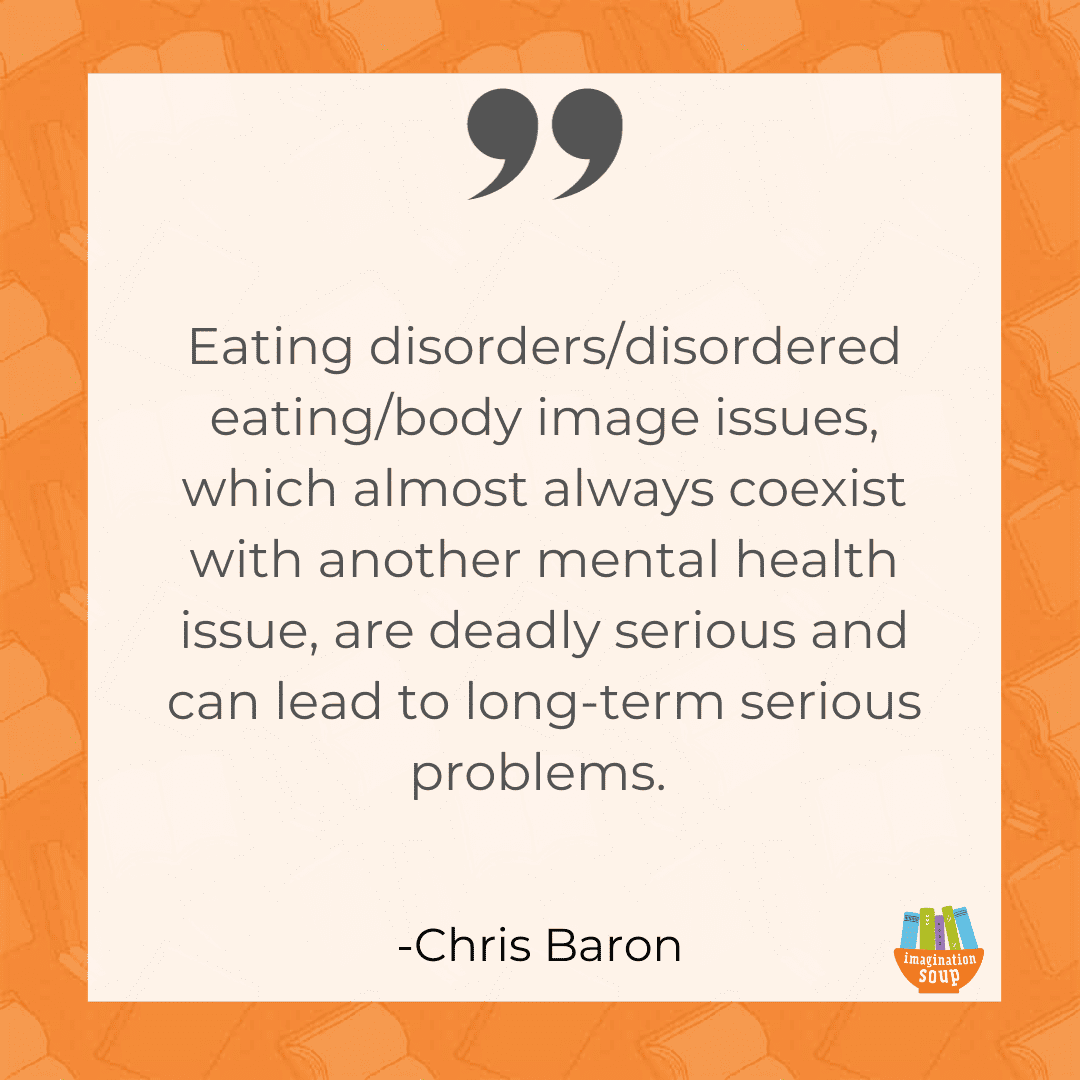
Our friends told us, with tears in their eyes.“When someone has leukemia, or another serious illness, there is rarely any shame, guilt or blame placed on the family. But when it’s an eating disorder, or related to body image, there is so much judgment and misconception–often blaming the kid or the family. This only makes things worse. I wish people could take a breath and listen to someone’s whole story.”
When we listen to the whole story, we start to understand who they are, where they come from, and what they are going through. So many misconceptions are washed away and replaced with compassion. And from there, we may even allow ourselves to go deep into empathy.
But even if these more serious and diagnosable issues don’t occur, the idea of being told you’re not good enough from a young age can lead to serious mental health concerns.
While I certainly faced my share of dangerous bullying, health concerns, stress, anxiety, and pressure, there are also more subtle situations that occur –even in the context of a loving community–that I wish we could talk about more together. I remember when nine-year-old me took the subway from Manhattan to Brooklyn to see my grandparents. My grandmother, my safest person, met me at the station on Avenue P and took me to get a lemon Italian Ice. I loved the cold, tart ice between my teeth. She told me of plans to go to the shore with our cousins. I beamed with the fullest joy a nine-year-old boy could feel.
When we reached her street, we saw some of her friends. I was used to this. They gathered around me, squeezing my cheeks.
“He’s looking healthy, Mae,” one said.
Then, out of nowhere, I heard my grandmother, for the first time in my life say something I didn’t expect. “Well, he’s going to get on a diet, and he’s going to be so skinny this summer.” Then she squeezed my shoulder and slid her hand around my waist where my love handle gently spilled over the elastic of my sweatpants, and squeezed
I didn’t like how it felt. I didn’t like how Grandma sounded. That day, it was like she opened a window into a world I didn’t recognize existed. I wasn’t good enough. There was an expectation for me to change.
Over time, I realized everyone around me was constantly unsatisfied with how they looked, too. My mom, my grandmother, everyone, it seemed, was always on some sort of diet, always on some sort of journey to change their bodies.
And they weren’t satisfied with how I looked either. Of course, I don’t blame my grandmother or anyone else. I knew they loved me fully. They were just trying to love me the best way they knew how. They thought they were helping. So often, the shame is woven into the language and actions of our culture. While in my own life, I’ve experienced a lot of healing, the effects have stayed with me.
This seems true more than ever-especially with social media. But….and here’s the thing…while all of this is true, there is also a movement happening that is rooted in self-love, self-acceptance, and embracing body diversity, and as an author of a book, All of Me, all about a boy dealing with body image, I am happy to say that one of the key places this movement is happening is in books! I can’t remember any stories about body image from when I was a kid. Usually, the overweight boy character would be the comic relief or the pathetic sidekick. But it’s really changing. Now more than ever, kids are learning to see themselves in the pages of books that help to tell their stories. This is good news!
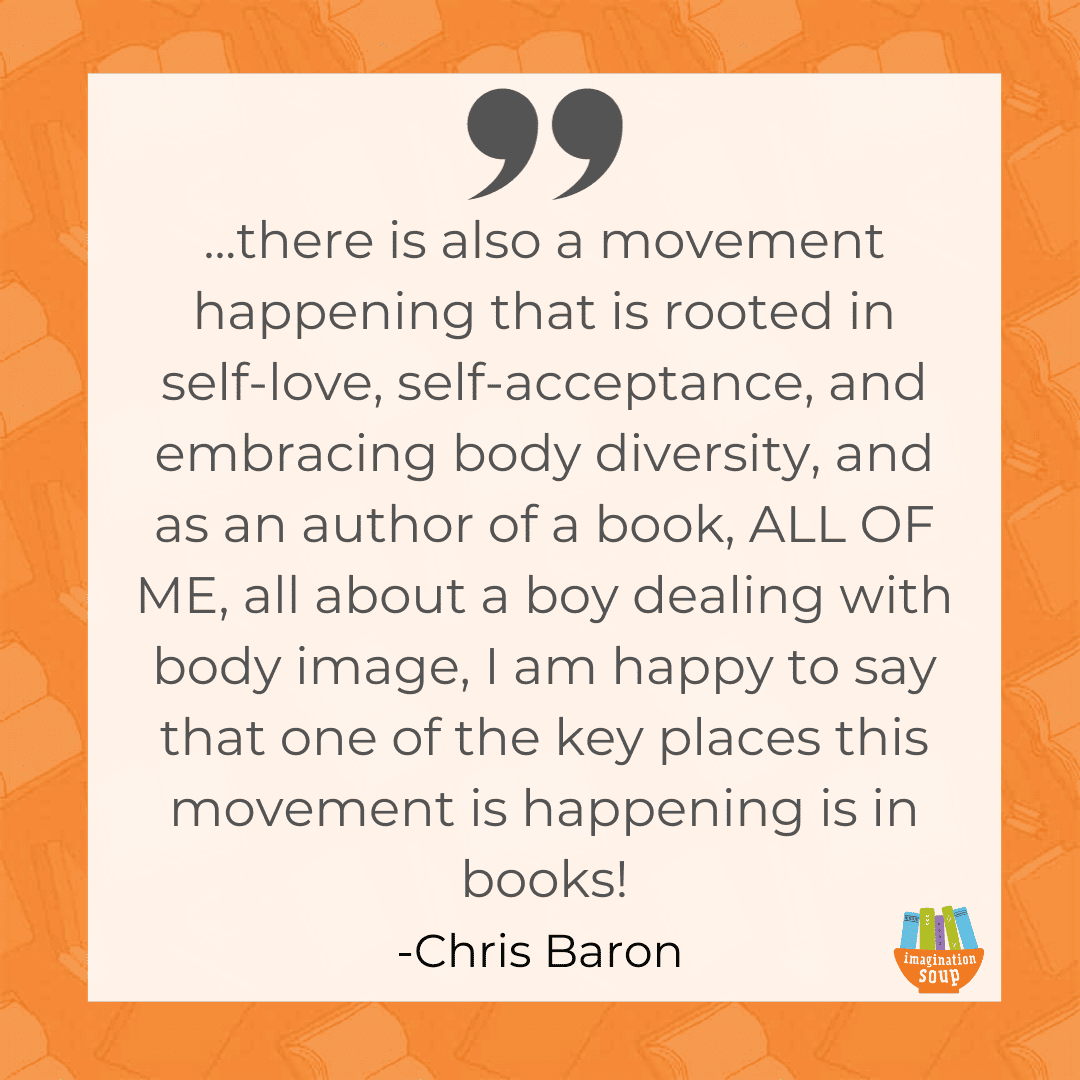
Melissa’s Story
That is good news, Chris!
Before we share the books, I want to share some of my experiences. I don’t have permission to reveal my daughter’s story, but I can share what we did to support her healing and recovery.
- We were hyper-aware of the situation.
- We never commented about weight or size. About anyone–us, her, actors on television, or neighbors across the street.
- If we talked about food and working out, we made sure we emphasized health and strength. My husband and I both work out because we want to be strong. We eat fiber because it’s healthy. That kind of thing.
- We allowed her to eat whatever she wanted, whenever we wanted (No, we did not have family dinners. Yes, it was sad. And yes, we were saving her life.)
- She had an exceptional therapist that she saw twice a week.
- Her therapies included Internal Family Systems, neurofeedback, Brain Highways, and Brainspotting, all of which I highly recommend.
- We knew that mental health healing could not happen overnight and held space for healing to happen gradually.
Our responsibility as parents, educators, and human beings is to do our best to helpfully support children who are struggling with body dysmorphia and eating disorders like anorexia or bulimia.
How do we do this besides the parenting strategies and therapeutic support I mentioned above?
One way is to read books with a character going through their own body image, eating disorder, or body dysmorphia struggles. And after you read, it’s just as critical to reflect and discuss what you read, what you learned, what you connected to, and what you’re still wondering!
That’s why Chris and I are sharing book recommendations and discussion questions from the authors. Use them with small groups. (Big groups can lead to unkindness or not feeling safe unless you set them up with very clear boundaries. See Lisa Fipp’s ideas below.) As always, with any group setting, please remember the importance of setting up behavior expectations clearly so all readers feel safe to share and ask questions.
Renowned Science Writer, Brain Specialist, and Journalist, Rita Carter says in Her TED TALK “Why Reading Matters,” “Your brain needs a workout as much as your body. And reading fiction seems to be one of the best workouts you can get. Not only is it good for you, but it’s also good for society as a whole because the brain is like a muscle: the more you force yourself through books to take other people’s perspectives, to sympathize, to empathize with other people, the more empathetic a society we will have.” We could not agree more.
Middle Grade Books About Eating Disorders, Disordered Eating, Body Dysmorphia, and Body Image
The books on this list are truly windows, mirrors, and doors. We peek into the lives of someone relatable and see their challenges; challenges that we, as readers, also might be experiencing. We watch as they navigate issues and solve problems. And then, we remember that we can do hard things, too.
These stories range from profound to adventurous but they all have in common exceptional writing that approaches body image themes, including eating disorders, in poignant, honest, and relatable ways.
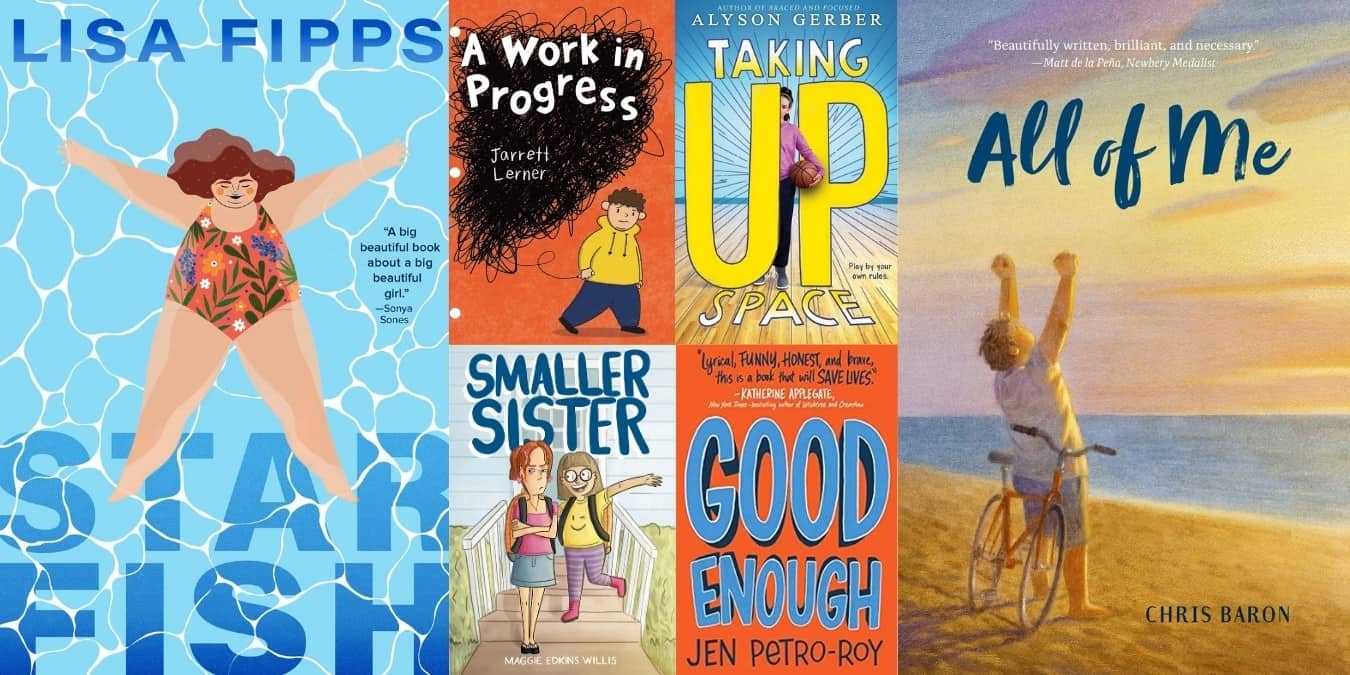
After the book list, you’ll find suggestions from many of the authors of these books. They’ll share ideas for using the books with readers whether in a classroom setting, small group, or at home! Use the free download to take these ideas with you. We hope that this resource will facilitate discussion and reflection with the readers in your life.
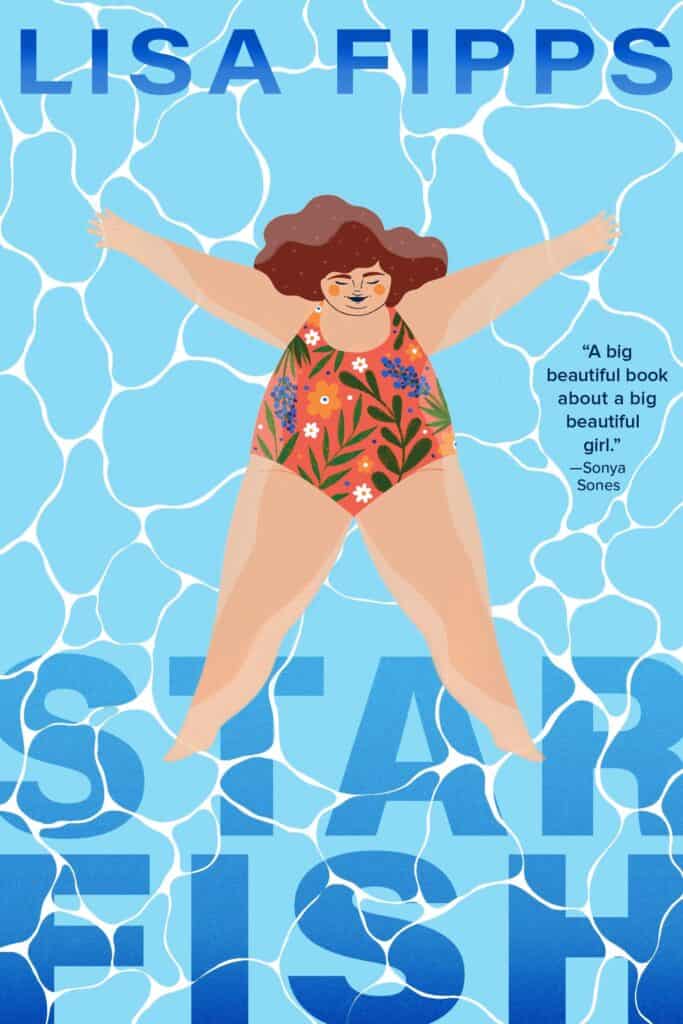
Starfish by Lisa Fipps
Heartbreaking and inspiring, this poignant story in verse is about a girl named Ellie who has suffered years of fat-shaming and bullying. Her worst bully is her mother–who won’t buy her new clothes because she thinks it encourages Ellie’s weight gain. Not even Ellie’s dad stands up to her mom’s cruel treatment. One thing that helps is Ellie loves swimming; it’s her safe escape, where she feels the most comfortable despite the teasing. When Ellie finds an understanding therapist, she transforms from powerless to powerful, standing strong like a starfish with pride and self-acceptance.
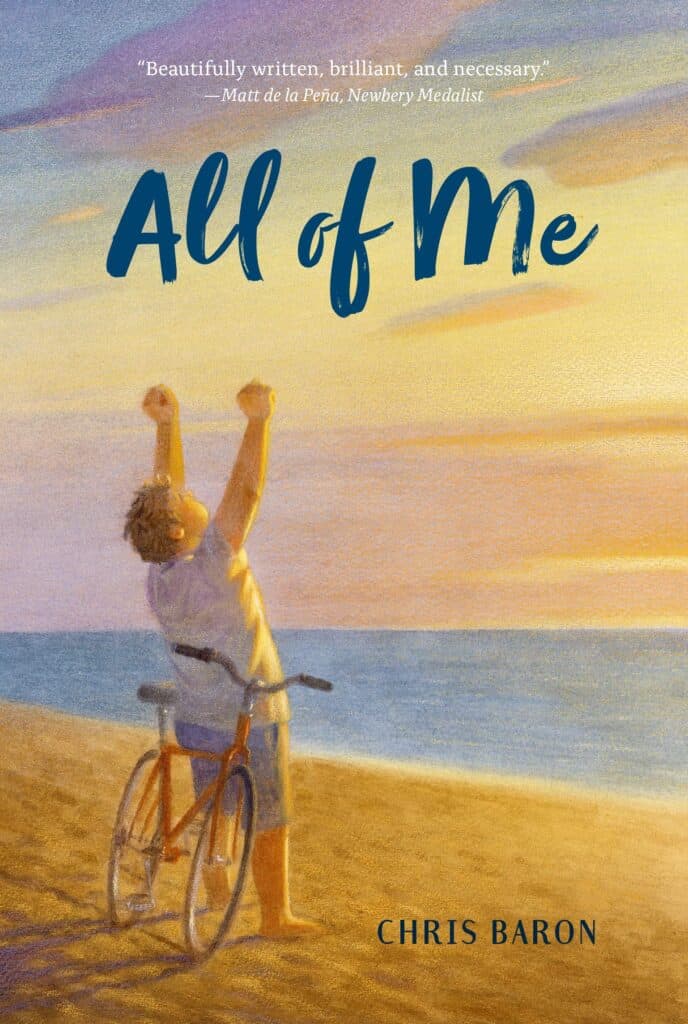
All of Me by Chris Baron
Ari is bullied for being Jewish and fat. Even worse? He believes the bullies are right! He hates his fat, and in his loathing, he self-harms. That’s when his mom helps him start a diet that works. It helps him lose weight –but it doesn’t fix everything. As Ari grows in confidence, he is supported by a kind rabbi who accepts Ari unconditionally, offering patience and wisdom. Soon, Ari realizes that he’s more than his weight. This is a heartfelt, powerful story that you won’t be able to put down.
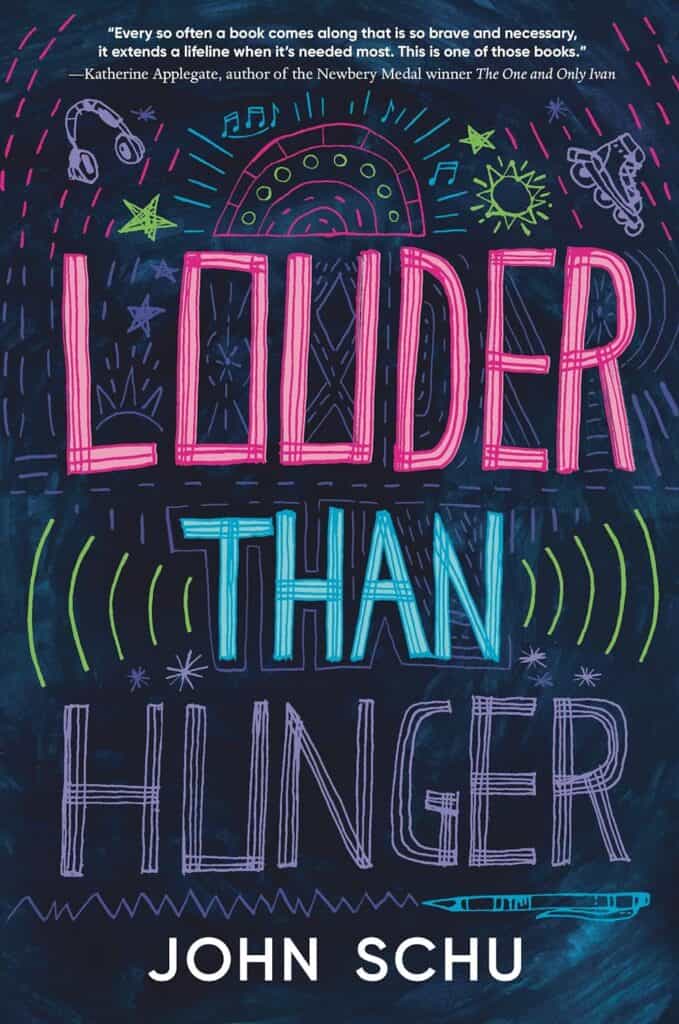
Louder Than Hunger by John Schu
This verse story grabs us and pulls us wholely into Jake’s body sensations, his mind’s thoughts, and his everyday experiences. After facing relentless bullying, middle schooler Jake’s mean Voice is the loudest thing he hears. Soon, Jake trusts the Voice and listens to it when it tells him he needs to be thinner, he shouldn’t eat, he shouldn’t trust anyone, and nobody loves him. His anorexia gets so bad that he’s hospitalized for weeks and months. And it isn’t an easy fix because the VOICE won’t stop pushing Jake to starve himself. Jake doesn’t find an easy answer or a quick fix, but he does find a glimmer of hope that things could be different with his grandma’s last request to take care of her boy (Jake,) an actual friend from the hospital, art therapy, and the surprising glimpse of a world with other kids who also like poetry and drama like he does. The writing is exquisite — every word, every line break, every capitalization, every bit of dialogue brings us on this painful journey.
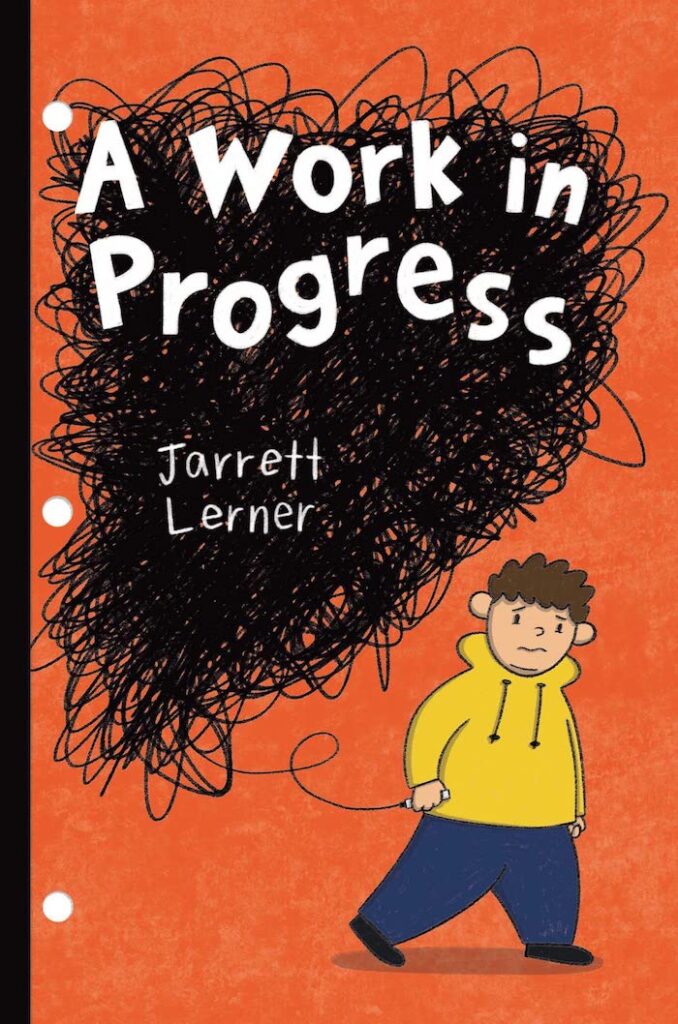
Work in Progress by Jarrett Lerner
Will is self-loathing about his body size, which makes his eating more and more disordered. He eats away the sadness and starves himself in shame. It’s a horrible cycle. While Will grapples with his body image, he makes a new friend. Will begins to see that he’s a work in progress. He shifts his perspective to see that eating, his body size, and his shape aren’t bad. And finally, he concludes that it’s not his job to change, to bend or twist to what others want, but to be true to himself. Written in verse, this is an unflinching, emotionally charged look at disordered eating and body dysmorphia.
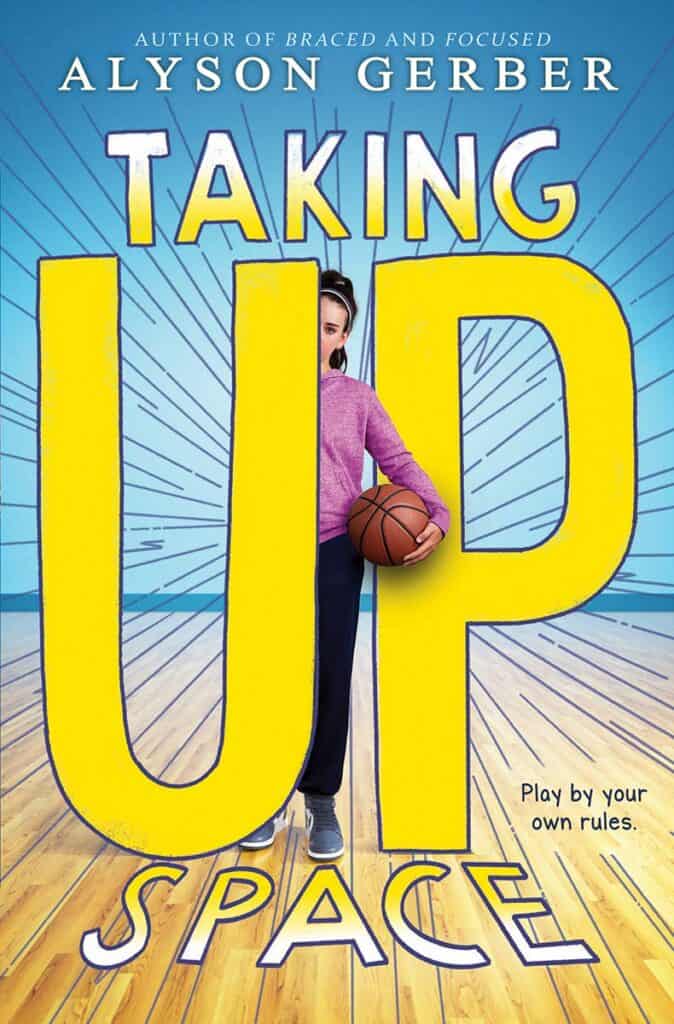
Taking Up Space by Alyson Gerber
Sarah’s mom’s dysfunctional relationship with food is affecting Sarah– who believes her slowness in basketball is related to eating too much or too many “unhealthy” foods. She’s confused, starving herself, and stressed out. Finally, a friend pushes Sarah to get help…and help is just what Sarah needs to understand the truth about her body, what health truly is, and how her mom’s disordered eating has affected her. Girls and boys need this book — they need to know that body image issues and eating disorders happen to other kids, too, that puberty changes their bodies, and that there is NO shame in getting help.
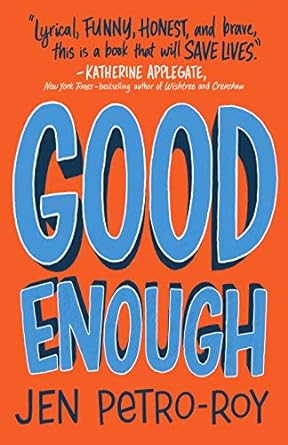
Good Enough Jen Petro-Roy
A young girl with an eating disorder must find the strength to recover in this moving middle-grade novel from Jen Petro-Roy. Before she had an eating disorder, twelve-year-old Riley was many things: an aspiring artist, a runner, a sister, and a friend. But now, from inside the inpatient treatment center where she’s receiving treatment for anorexia, it’s easy to forget all of that. Especially since, under the influence of her eating disorder, Riley alienated her friends, abandoned her art, turned running into something harmful, and destroyed her family’s trust. If Riley wants her life back, she has to recover. Part of her wants to get better. As she goes to therapy, makes friends in the hospital, and starts to draw again, things begin to look up. But when her roommate starts to break the rules, triggering Riley’s old behaviors and blackmailing her into silence, Riley realizes that recovery will be even harder than she thought. She starts to think that even if she does “recover,” there’s no way she’ll stay recovered once she leaves the hospital and is faced with her dieting mom, the school bully, and her gymnastics-star sister. Written by an eating disorder survivor and activist, Good Enough is a realistic depiction of inpatient eating disorder treatment and a moving story about a girl who has to fight herself to survive.
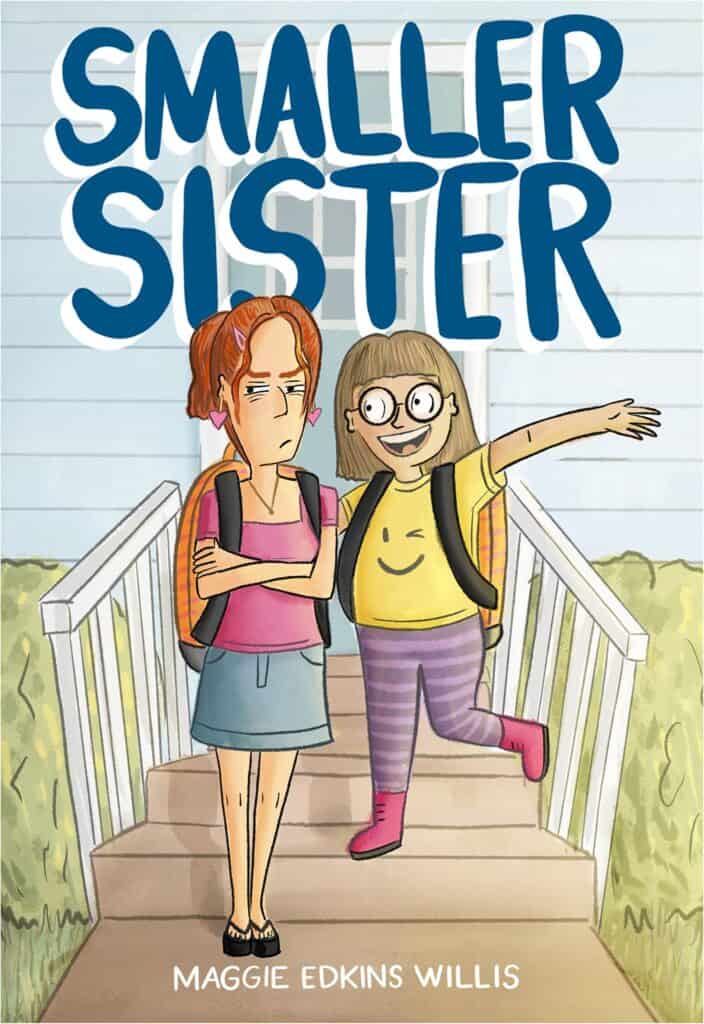
Smaller Sister by Maggie Edkins Willis
Based on her own experience, this graphic novel is about body image and eating disorders within a family with two sisters. Lucy already hates how distant her older sister Olivia is, but when Olivia is diagnosed with anorexia, Lucy watches both her parents freak out and Olivia shrink away into a skeleton. When they move to a new town, Lucy makes new friends who are body-size-obsessed which leads to her developing an eating disorder, too. By the end of the story, Olivia and Lucy both are recovering from their eating disorder, and Oliva’s crush turns into a boyfriend. It’s an important book to discuss, especially regarding the science of what happens to your body when you have an eating disorder and why our culture obsesses about body size.
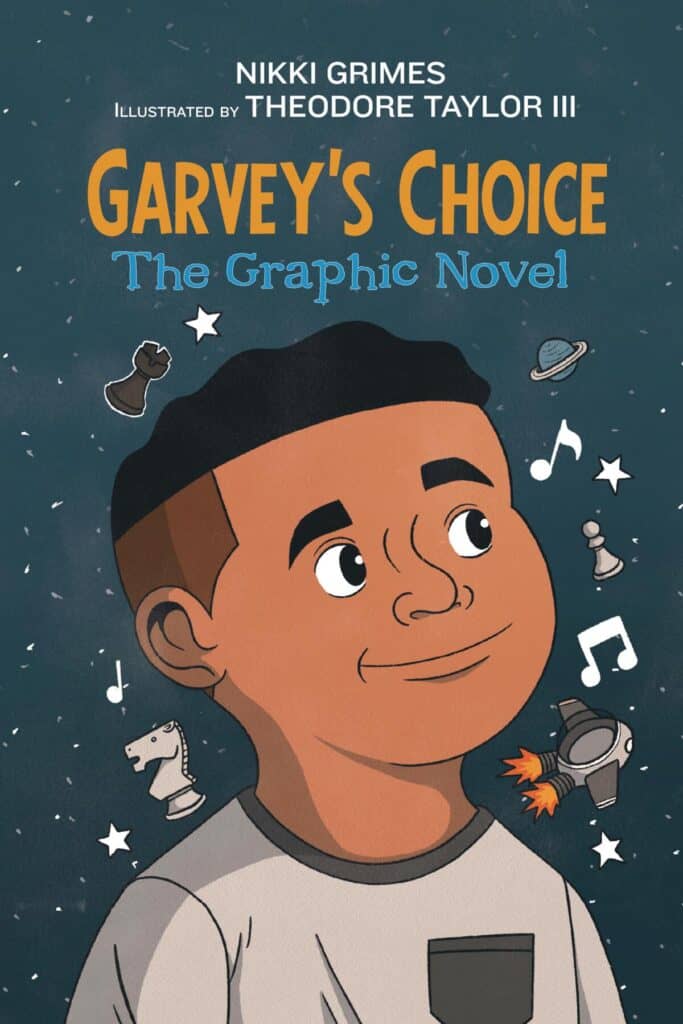
Garvey’s Choice: The Graphic Novel written by Nikki Grimes
Garvey’s dad wants him to play sports instead of reading. Making life even worse, everyone seems to make fun of Garvey’s size, calling him cruel names like chunky and little piggy. He’s worried about his weight until a new foodie friend helps Garvey enjoy food and not feel guilty about eating. That same friend also encourages Garvey to join the chorus, which he does and loves it. In fact, singing makes Garvey feel more like himself. But will he be brave enough to share his singing with his sports-loving dad?
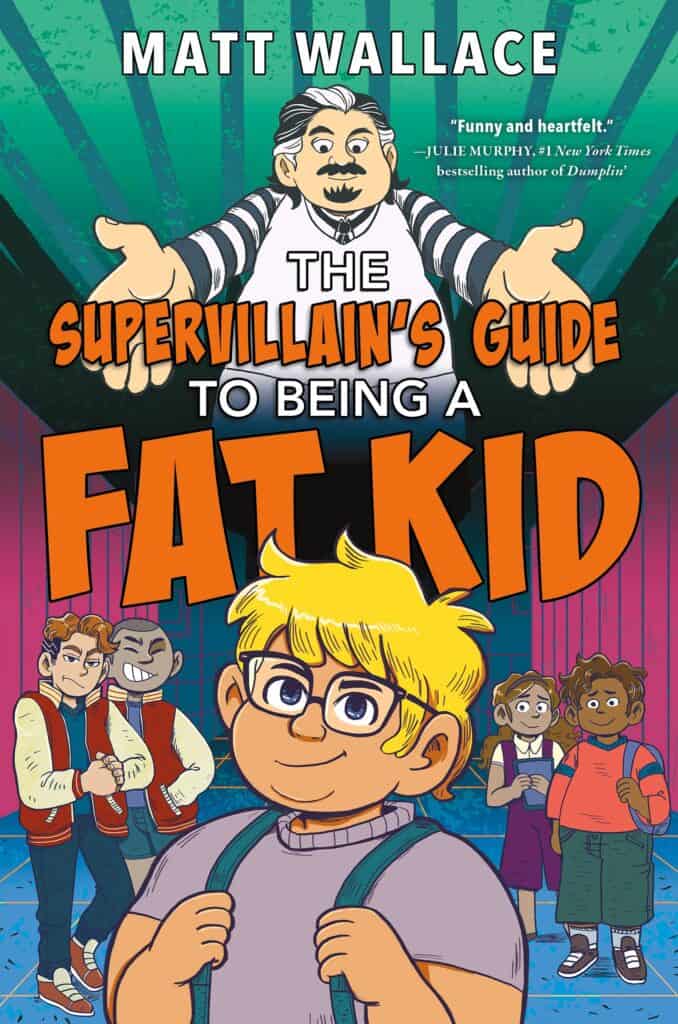
The Supervillain’s Guide to Being a Fat Kid by Matt Wallace
In this outstanding, surprisingly philosophical story about dealing with bullies, growing in confidence, and the complexities of human beings, Matt doesn’t think he can survive three more years of middle school bullying. He writes the supervillain Master Plan, who is also a “gentleman of size”, asking for his help. Surprisingly, Master Plan emails back with helpful, sage advice. But Matt doesn’t know if Master Plan is actually looking out for Max or himself? And, can he learn the nuggets of wisdom anyway, knowing the rest might be motivated by a jail escape plot?
How to Use These Books in the Classroom or at Home
How can you use ALL OF ME by Chris Baron? Here’s what Chris says.

Sometimes teachers may be concerned about kids being singled out during a classroom reading of ALL OF ME (or related books).
Teachers have told me that sharing ALL OF ME, along with other books related to bullying, self acceptance, and not necessarily just about body image, has been a great way to make these sensitive topics more safe!
Also, including ALL OF ME in the context of simple “Novels in Verse,” or “Stories about Summer,” “Jewish Themed books,” or, “Coming of Age.”
In addition, here is a link to some educator created Study/Discussion Questions that can be used with ALL OF ME.
If you’ll be reading STARFISH by Lisa Fipps, Lisa generously shares thoughtful ideas for teachers and librarians.

- Librarians have found that if they give Starfish along with two other non-body-related books to a child as recommendations, the child doesn’t feel as if they are being singled out because they are fat. They are just being given three good book choices. The three-book sandwich technique works really well for books like this.
Teachers who have concerns that children will be singled out or mocked if the class reads Starfish aloud and discusses it, can do these three things.
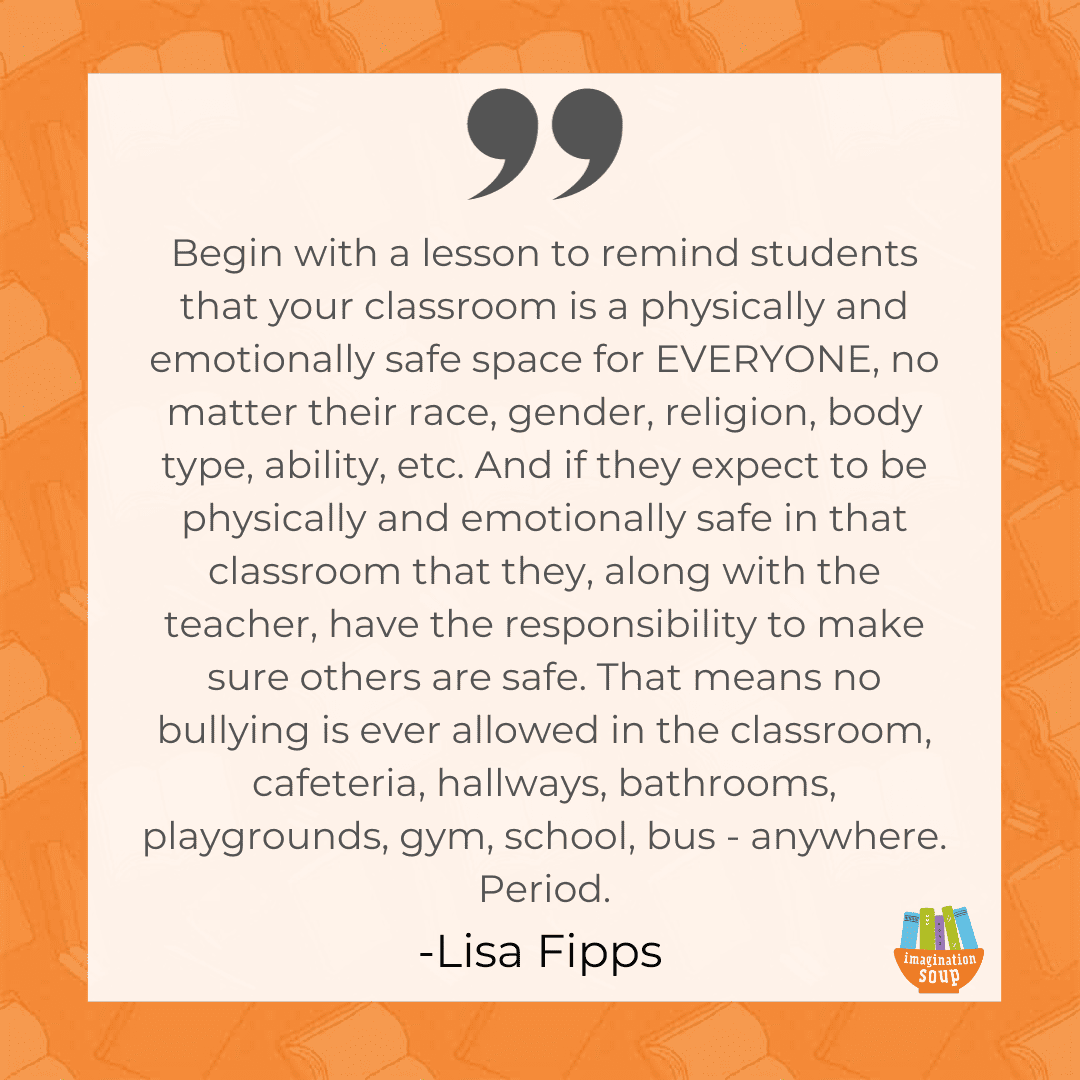
- Begin with a lesson to remind students that your classroom is a physically and emotionally safe space for EVERYONE, no matter their race, gender, religion, body type, ability, etc. And if they expect to be physically and emotionally safe in that classroom that they, along with the teacher, have the responsibility to make sure others are safe. That means no bullying is ever allowed in the classroom, cafeteria, hallways, bathrooms, playgrounds, gym, school, bus – anywhere. Period.
- Discuss Starfish. Talk about how society tries to make everyone believe that there is one ideal body type and all people should strive to look like that.
However, there are almost 8 billion people on the planet, and even identical twins have differences. Even if we have similarities, we are all different, and different is okay. - Discuss other books where people are bullied or made to feel like outcasts for other reasons. That way more people in the class see themselves in Ellie.
Jen Petro-Roy, the author of GOOD ENOUGH, reflects on recovery, lists, and journaling.

One of the hardest things about recovering from an eating disorder is developing the ability to be honest, both with others (your support system, family, friends, and therapist), but more importantly, with yourself. An eating disorder lies constantly to convince you that it will make your life better—if only you look a certain way, eat a certain way, move a certain way, etc.
This is partially why I wrote Good Enough in the form of a journal, so the reader could see directly inside Riley’s head and follow her progression from lying to others (and herself) to finally starting to open herself up to the world so she can admit her struggles and allow her desire for life to triumph over the old rules and whispers of her eating disorder.
One thing I always found helpful when I myself was sick and that I’ve heard many readers do is to make a list of the pressures that are facing them. These may not be from an eating disorder, even—they could be relating to peer pressure, how they think they “should be” or what others/family members “want them to do” in life. Is there a list of things they could make to counter that? Who are they really—deep inside? What do they want and value and how do the voices outside them contradict that? How can they make their true voice stronger?
Alyson Gerber explains more about the message of TAKING UP SPACE and prompting reflection after reading the book.

Taking Up Space is a story about learning to value yourself. This book is about finding a way to believe that you are worthy of love and support and food just as you are and also that you’re worthy of those same things as you change and grow and go through puberty.
Taking Up Space lends itself really nicely to journaling or a journal entry about self-worth.
Jarret Lerner, author of WORK IN PROGRESS, encourages safety as the first step in healing.

I’m pretty sure everyone struggles with some insecurity or another. I’ve found that opening up and sharing about them in spaces in which I feel safe and secure doing so has been incredibly rewarding, helpful, and healing. Opening up was, in fact, the first step toward getting a handle on my insecurities, and working toward overcoming many of them. I hope reading A Work in Progress both encourages readers to find those safe, secure spaces in which they can share, and also encourages them to help create those safe, secure spaces in which their peers and friends can also share.
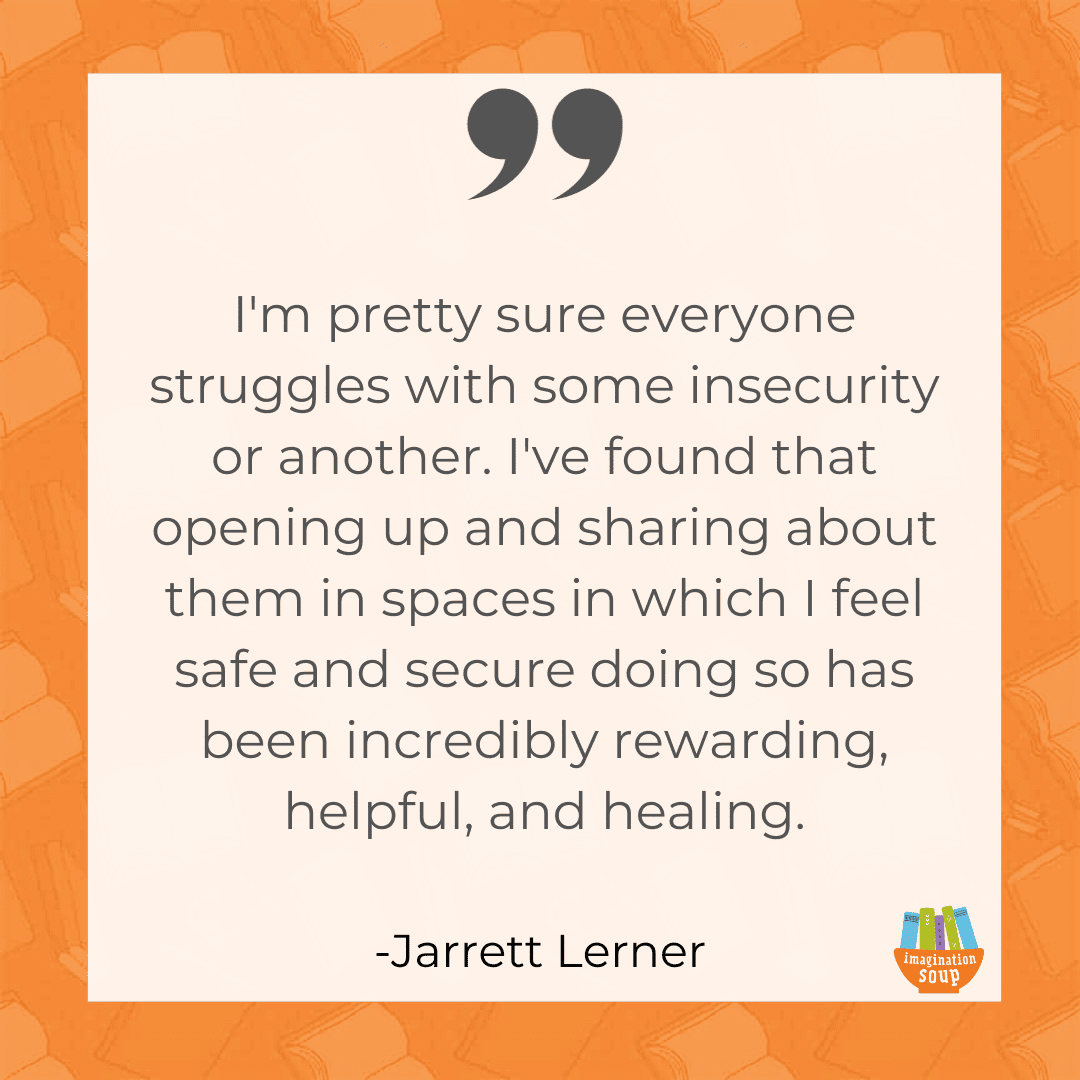
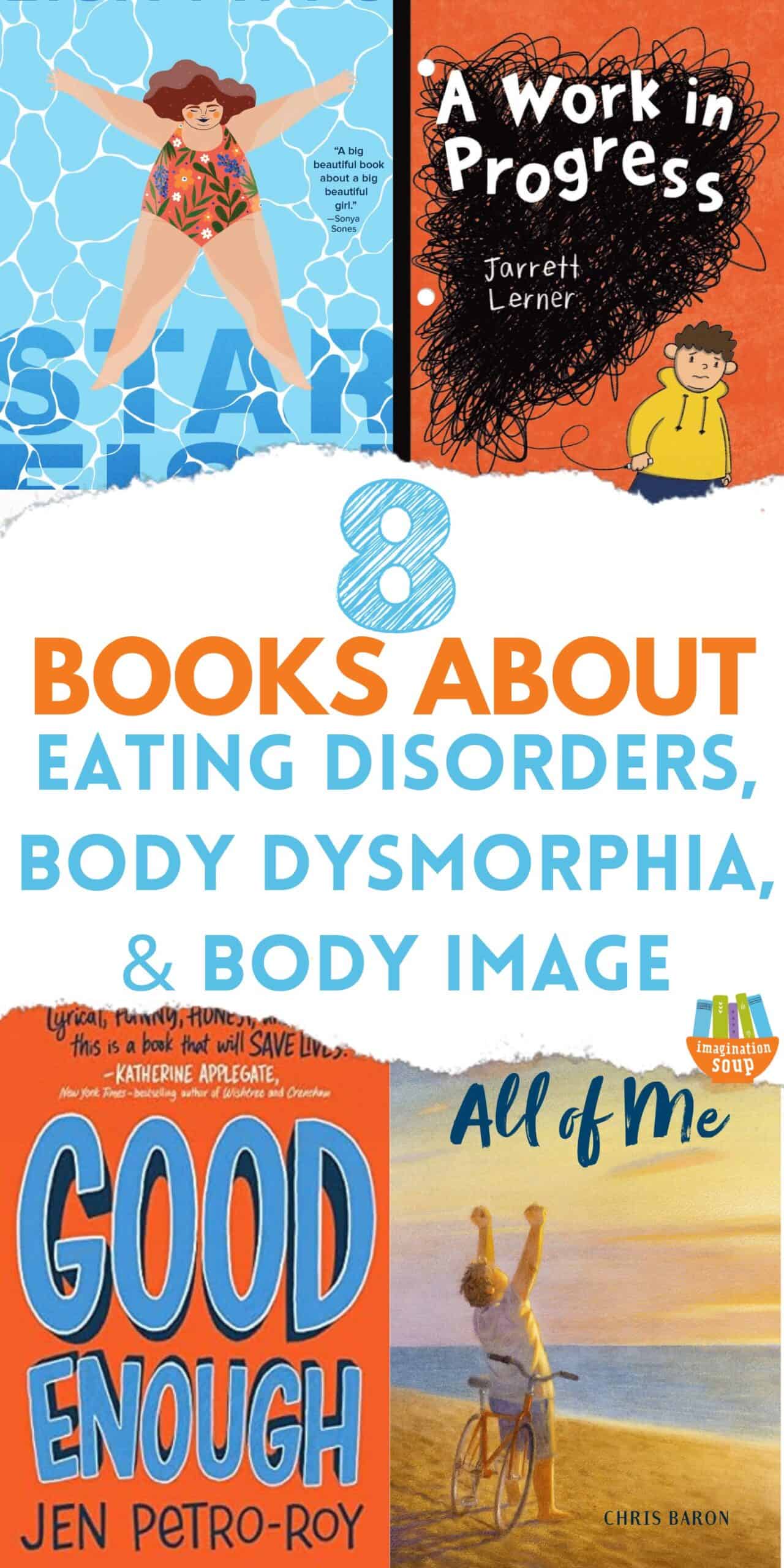
KEEP READING

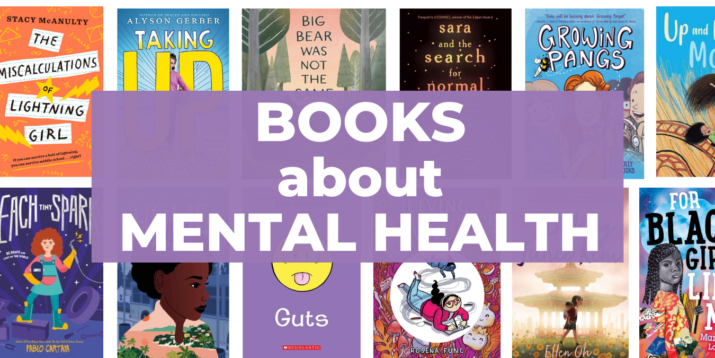
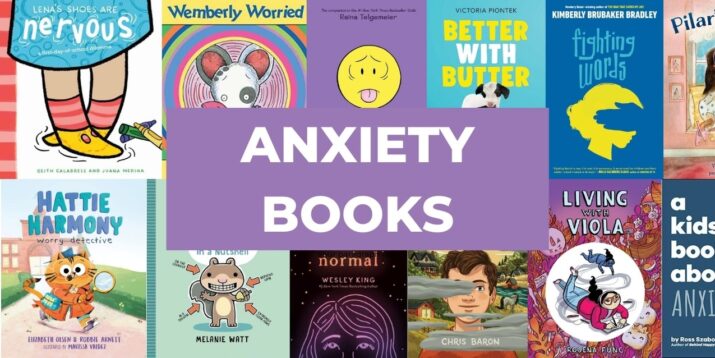
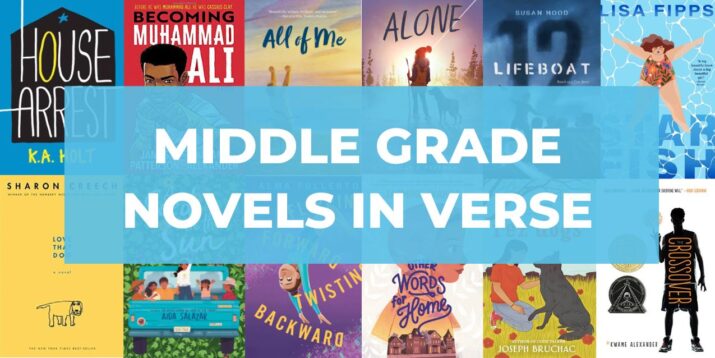
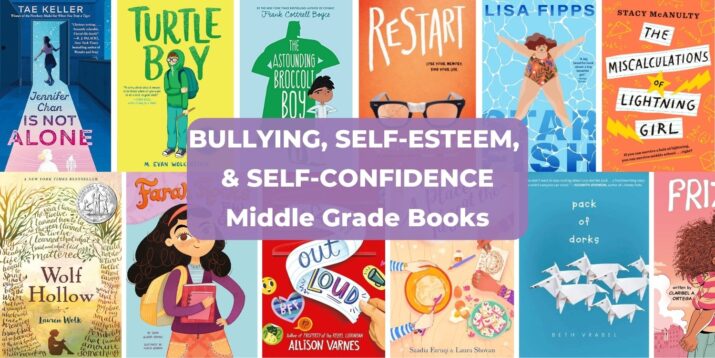

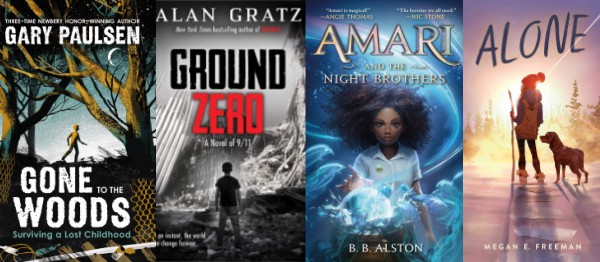


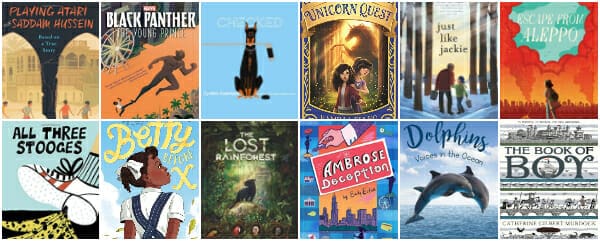
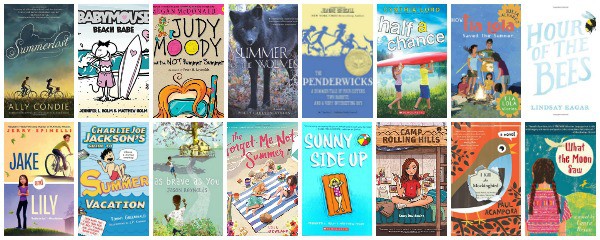
Great books! Would have loved REENI’S TURN (Regal House 2020) included; an award-winning novel in verse manuscript, it sadly arrived from a then-small traditional publisher at beginning of covid. REENI’S TURN is a story about body acceptance and positivity that also challenges the negative impact of diet industry on middle grade children. It explores the mystery of where courage comes from, and the joy in its discovery.
Thanks, Carol. I’ll check it out!
I’m sharing this great column with my therapist niece who will relate in many ways. So many nuggets for writers, educators and parents as well as for the MG readers. Thank you for this relatable and personal column, Melissa and writing friends.
Thank you, Beth.